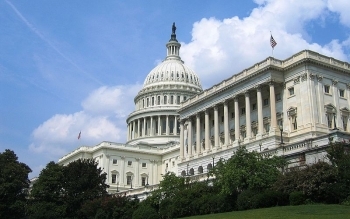Environmental Law (Environmental Law & Policy)
Environmental Law
This branch of law comprises the legal protections that regulate the behavior of groups and individuals, public and private, to minimize, mitigate and/or penalize the impact of human activities on the natural environment.
Environmental law, just like the natural systems it seeks to protect, cuts across borders: international, regional and state or provincial. It cuts across time because it respects traditional and historical practices and rights while it must also reflect today’s realities. It requires cooperation and broad aspirational goals and the independent and unique point of view of local and national governments. It, more than any other type of law, sometimes takes the position that Nature, other species and the planet itself have significant rights that it must safeguard. It protects public resources like air and water, and it looks to further the public good.
Certain aspects of environmental law are well-defined and well-developed, others are nascent or constrained by the character of the resource that needs protection. It is a still developing field that is under pressure to transform itself because it must adapt to major factors like climate change and changing social attitudes towards the environment and sustainability. At the same time, it is slowed by the deliberate nature of the democratic processes that underpin it, and it is constantly challenged by the industries that it regulates, the organizations that advocate for the environment and the public in general.
-
 Featured Article
Featured Article  Light pollution (Environmental Law)Light pollution is the intrusion of unwanted or unneeded artificial light into a man-made or natural environment. A variety of somewhat separate phenomena comprise the... More »
Light pollution (Environmental Law)Light pollution is the intrusion of unwanted or unneeded artificial light into a man-made or natural environment. A variety of somewhat separate phenomena comprise the... More »
-
 Featured Article
Featured Article  Toxic Substances Control Act, United StatesThe Toxic Substances Control Act (TSCA, 15 U.S.C. 2601 et seq.) authorizes the U.S. Environmental Protection Agency (EPA) to screen existing and new chemicals used in... More »
Toxic Substances Control Act, United StatesThe Toxic Substances Control Act (TSCA, 15 U.S.C. 2601 et seq.) authorizes the U.S. Environmental Protection Agency (EPA) to screen existing and new chemicals used in... More »
 Role of science in regulation Last Updated on 2013-09-17 21:56:46 This article, authored by Tim Lougheed[1],appeared first in Environmental Health Perspectives—the peer-reviewed, open access journal of the National Institute of Environmental Health Sciences. The article is a verbatim version of the original and is not available for edits or additions by Encyclopedia of Earth editors or authors. Companion articles on the same topic that are editable may exist within the Encyclopedia of Earth. ] When Rachel Carson took on the task of defining environmental health advocacy in the early 1960s, she made the business of government oversight look simple and straightforward. "Much of the necessary knowledge is now available, but we do not use it," she wrote in her 1962 book Silent Spring. "We train ecologists in our universities and even employ them in our government agencies, but we seldom take their advice. We allow the... More »
Role of science in regulation Last Updated on 2013-09-17 21:56:46 This article, authored by Tim Lougheed[1],appeared first in Environmental Health Perspectives—the peer-reviewed, open access journal of the National Institute of Environmental Health Sciences. The article is a verbatim version of the original and is not available for edits or additions by Encyclopedia of Earth editors or authors. Companion articles on the same topic that are editable may exist within the Encyclopedia of Earth. ] When Rachel Carson took on the task of defining environmental health advocacy in the early 1960s, she made the business of government oversight look simple and straightforward. "Much of the necessary knowledge is now available, but we do not use it," she wrote in her 1962 book Silent Spring. "We train ecologists in our universities and even employ them in our government agencies, but we seldom take their advice. We allow the... More »  South Coast Air Quality Management District Last Updated on 2013-08-11 09:47:11 The South Coast Air Quality Management District (SCAQMD), formed in 1976, is the local governmental agency in California which is responsible for regulating stationary sources of air pollution in the area depicted on the adjacent map. That area includes all of Orange county and the urban portions of Los Angeles, Riverside and San Bernardino counties. The main office of the SCAQMD is located in the city of Diamond Bar, California.[1] The area encompassed by the SCAQMD amounts to about 10,750 square miles (27,840 square kilometres) and is the second most populated area in the United States. This area has a severe problem with smog and the SCAQMD has been a leader in the nation's efforts to reduce air pollution emissions. The SCAQMD develops, adopts and implements an "Air Quality Management Plan" for bringing the area into compliance with the clean air standards... More »
South Coast Air Quality Management District Last Updated on 2013-08-11 09:47:11 The South Coast Air Quality Management District (SCAQMD), formed in 1976, is the local governmental agency in California which is responsible for regulating stationary sources of air pollution in the area depicted on the adjacent map. That area includes all of Orange county and the urban portions of Los Angeles, Riverside and San Bernardino counties. The main office of the SCAQMD is located in the city of Diamond Bar, California.[1] The area encompassed by the SCAQMD amounts to about 10,750 square miles (27,840 square kilometres) and is the second most populated area in the United States. This area has a severe problem with smog and the SCAQMD has been a leader in the nation's efforts to reduce air pollution emissions. The SCAQMD develops, adopts and implements an "Air Quality Management Plan" for bringing the area into compliance with the clean air standards... More »  Science and Technology Issues in the 113th Congress Last Updated on 2013-08-07 11:09:36 This article is drawn from CRS Report R43114: Science and Technology Issues in the 113th Congress by Frank Gottron, June 20, 2013 Science and technology have a pervasive influence over a wide range of issues confronting the nation. Public and private research and development spurs scientific and technological advancement. Such advances can drive economic growth, help address national priorities, and improve health and quality of life. The constantly changing nature and ubiquity of science and technology frequently creates public policy issues of congressional interest. The federal government supports scientific and technological advancement by directly funding research and development and indirectly by creating and maintaining policies that encourage private sector efforts. Additionally, the federal government establishes and enforces regulatory frameworks... More »
Science and Technology Issues in the 113th Congress Last Updated on 2013-08-07 11:09:36 This article is drawn from CRS Report R43114: Science and Technology Issues in the 113th Congress by Frank Gottron, June 20, 2013 Science and technology have a pervasive influence over a wide range of issues confronting the nation. Public and private research and development spurs scientific and technological advancement. Such advances can drive economic growth, help address national priorities, and improve health and quality of life. The constantly changing nature and ubiquity of science and technology frequently creates public policy issues of congressional interest. The federal government supports scientific and technological advancement by directly funding research and development and indirectly by creating and maintaining policies that encourage private sector efforts. Additionally, the federal government establishes and enforces regulatory frameworks... More »  Nonpoint source (Environmental Law) Last Updated on 2013-05-23 00:00:00 A nonpoint source refers to a source of pollution from an origin other than a well defined point. The term is most often applied to air pollution, water pollution and noise pollution. Nonpoint pollution sources may be classified as either line sources, area sources, or less frequently as volume sources. The classic line source is a linear highway, which produces both air pollution and noise pollution. A classic area source is a parcel of land, which produces water pollution in the form of surface runoff containing excessive amounts of nitrates, phosphates, pesticides and herbicides. The attention to nonpoint sources was heightened, when researchers realized that most human exposure to air and noise pollution derived from nonpoint sources. In the case of noise pollution, over ninety percent of environmental noise exposure worldwide arises from line sources .Less commonly,... More »
Nonpoint source (Environmental Law) Last Updated on 2013-05-23 00:00:00 A nonpoint source refers to a source of pollution from an origin other than a well defined point. The term is most often applied to air pollution, water pollution and noise pollution. Nonpoint pollution sources may be classified as either line sources, area sources, or less frequently as volume sources. The classic line source is a linear highway, which produces both air pollution and noise pollution. A classic area source is a parcel of land, which produces water pollution in the form of surface runoff containing excessive amounts of nitrates, phosphates, pesticides and herbicides. The attention to nonpoint sources was heightened, when researchers realized that most human exposure to air and noise pollution derived from nonpoint sources. In the case of noise pollution, over ninety percent of environmental noise exposure worldwide arises from line sources .Less commonly,... More »  California Air Resources Board Last Updated on 2011-11-21 00:00:00 Introduction The California Air Resources Board, also known as (CARB), is the "clean air agency" in the government of California. CARB was formed in 1967 as a department within the California Environmental Protection Agency (Cal/EPA). Its stated goals include attaining and maintaining healthy air quality, protecting the public from exposure to toxic air contaminants and providing innovative approaches for complying with national and state air pollution control rules and regulations.[1] CARB's headquarter offices are maintained in Sacramento, the capital city of California. A brief history In 1967, California's state Legislature passed the Mulford-Carrell Act, which created CARB by combining two bureaus within the Department of Health, namely the Bureau of Air Sanitation and the Motor Vehicle Pollution Control Board.[1] On February 8,... More »
California Air Resources Board Last Updated on 2011-11-21 00:00:00 Introduction The California Air Resources Board, also known as (CARB), is the "clean air agency" in the government of California. CARB was formed in 1967 as a department within the California Environmental Protection Agency (Cal/EPA). Its stated goals include attaining and maintaining healthy air quality, protecting the public from exposure to toxic air contaminants and providing innovative approaches for complying with national and state air pollution control rules and regulations.[1] CARB's headquarter offices are maintained in Sacramento, the capital city of California. A brief history In 1967, California's state Legislature passed the Mulford-Carrell Act, which created CARB by combining two bureaus within the Department of Health, namely the Bureau of Air Sanitation and the Motor Vehicle Pollution Control Board.[1] On February 8,... More » 